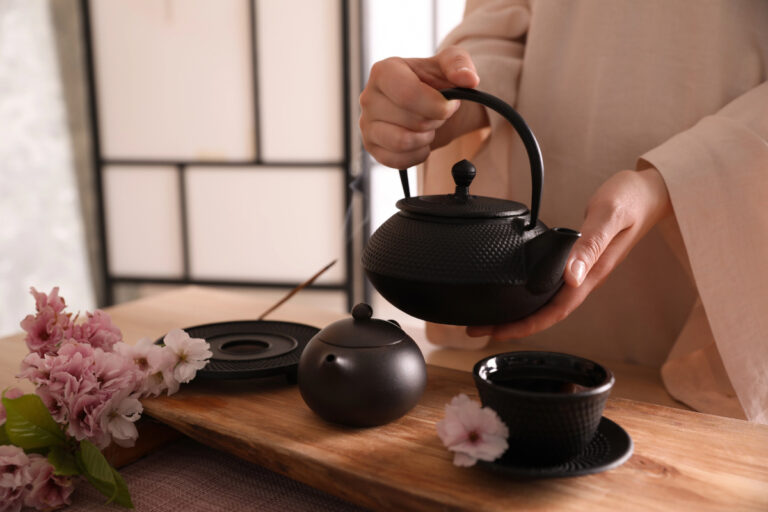A tea master is an individual who has attained a high level of expertise in the art of tea preparation and presentation. In this context, a tea master is not only skilled in the technical aspects of brewing tea but also deeply knowledgeable about the cultural, philosophical, and aesthetic principles.
Roles and Responsibilities
- Tea Preparation: Mastery over the precise methods of preparing and serving tea, including the use of specialized utensils like the chawan (tea bowl), chasen (tea whisk), and chashaku (tea scoop).
- Cultural Understanding: A deep appreciation for the historical and cultural significance of the tea ceremony, its origins, as well as its emphasis on harmony, respect, purity, and tranquility.
- Aesthetic Sensibility: An eye for aesthetics in choosing tea utensils, arranging the tea room, and selecting scrolls and flower arrangements that reflect the season or occasion.
- Instruction and Leadership: Teaching students the principles and practices of the tea ceremony, often through formal schools or lineages, and sometimes hosting ceremonies to promote cultural exchange.
Modern Relevance
Today, tea masters continue to preserve and promote the cultural heritage of the tea ceremony. They may conduct demonstrations, teach classes, or participate in international cultural exchanges. The principles taught by tea masters—such as mindfulness, respect, and the appreciation of simplicity—remain relevant in contemporary society.

